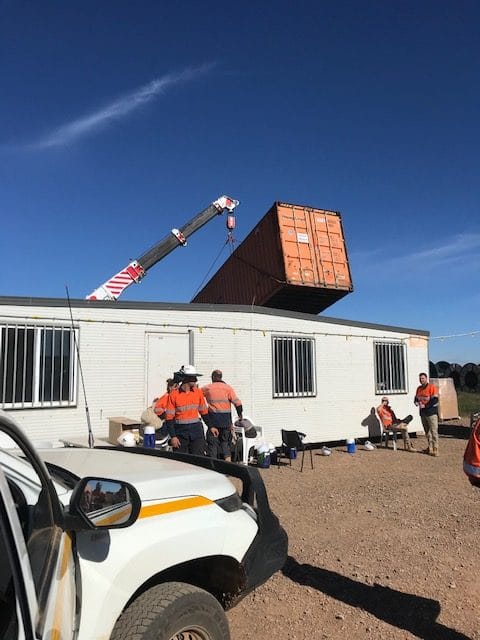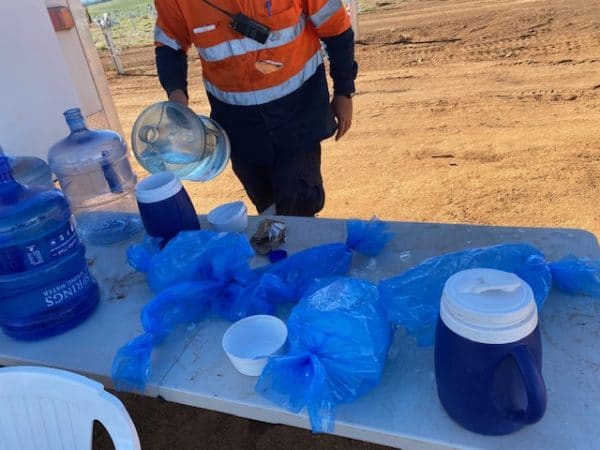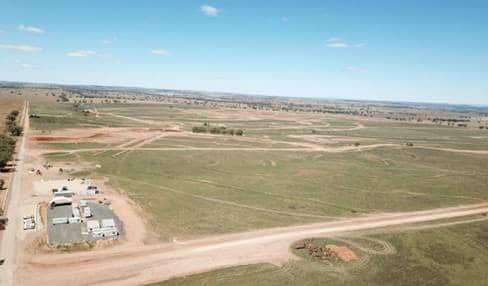In New South Wales’s (NSW) Central West, workers at the Suntop Solar Farm near Wellington are complaining of dangerous and unhygienic conditions, and they’ve got images and video to support their claims.
Bouygues Construction Australia, the company managing the site, has reportedly failed to take worker complaints to SafeWork NSW. Among the workers’ core complaints are vermin in eating areas, shoddy toilet and fridge conditions, a lack of women’s hygiene facilities and a lack of access to fresh drinking water in hot conditions (though the pictures provided do show large water bottles).
On top of that, video has emerged showing a crane dangling a shipping container precariously over a staff lunchroom.

Allen Hicks, deputy secretary of the Electrical Trades Union, NSW and ACT Branch, described the conditions as “disgraceful” and “endangering the lives of our members.” Hicks called on NSW Energy and Environment Minister Matt Kean to take urgent action to make sure basic safety standards are being enforced.

Hicks went so far as to describe the event as “clean energy’s dirty secret”, but of course, this is no more clean energy’s secret than the secret of construction in general.
Craig Bearsley, energy director at global infrastructure firm Aecom, recently told pv magazine that the labour resources required to build solar farms are not easy to find in Australia, especially in the context of the Covid-19 pandemic.
“We don’t have the supply of backpackers that we had to build solar farms two years ago, they’ve gone,” said Bearsley. “And you don’t find a hell of a lot of Australians that want to go out and screw in bolts on solar panels all day in the sun.”
Various branches of the Electrical Trades Union have taken aim at construction companies involved in solar park construction. The union, which historically wielded considerable power through their strong membership base at coal and gas-fired power plants, has been active in highlighting work practice and safety concerns at solar construction sites in the past.
In mid-2019, construction of over 3 GW of utility scale solar was disrupted in Queensland, when the state government introduced a requirement that solar module installation only be carried out by licensed electricians. The move, thrown out by the courts, was seen by some as behind-the-scenes efforts by unions to expand their influence to solar farm construction.
This content is protected by copyright and may not be reused. If you want to cooperate with us and would like to reuse some of our content, please contact: editors@pv-magazine.com.









By submitting this form you agree to pv magazine using your data for the purposes of publishing your comment.
Your personal data will only be disclosed or otherwise transmitted to third parties for the purposes of spam filtering or if this is necessary for technical maintenance of the website. Any other transfer to third parties will not take place unless this is justified on the basis of applicable data protection regulations or if pv magazine is legally obliged to do so.
You may revoke this consent at any time with effect for the future, in which case your personal data will be deleted immediately. Otherwise, your data will be deleted if pv magazine has processed your request or the purpose of data storage is fulfilled.
Further information on data privacy can be found in our Data Protection Policy.